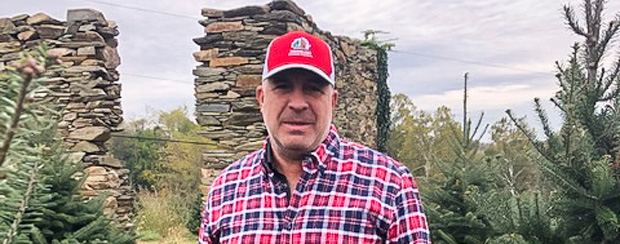When I planted my first Christmas trees in 2004, I thought I had created the ideal seasonal business: a family-operated enterprise that would teach my kids a strong work ethic and, over time, make some money.
Why Christmas trees? My wife Dawn and I loved going out and cutting down our tree every year as part of our holiday tradition to honor the birth of Christ—and we wanted to share that experience with others. A tree typically takes eight to 10 years to look good enough to be “the one”—so we didn’t actually begin selling them until 2013. Our business, with a sales period that stretches from the weekend before Thanksgiving to Christmas Eve, has grown 30% to 50% per year since then.
Admittedly, I got a lot wrong before I got it right. The bottom line: We were able to finance Dreamland Christmas Tree Farm ourselves through our full-time day jobs, and the business finally became profitable in 2019.
Green mistakes
In the beginning, frankly, I had no idea what I was doing. I went to other Christmas tree farms’ websites in my region, looked at the trees they grew and followed their lead. I planted a thousand trees that first year, and many of them died or got sick. To make matters worse, I failed to prepare the land correctly, which created a weed-control problem that I’m still battling.
I did make one smart move: I joined the Maryland Christmas Tree Association. I’ve learned that older tree growers are eager to help the next generation, and their guidance has been nothing short of invaluable to us.
The other piece I didn’t fully understand at the start was that the workload associated with my five-week seasonal sales period extends into just about every other month of the year. January and February are a tree farmer’s time off, but the rest of the calendar involves a huge to-do list, including grinding tree stumps, spraying for pests, weeding and putting new trees in the ground.
You can put 1,200 Christmas trees on a single acre, and we probably have close to 10,000 today. One big pivot we’ve made is to specialize. The Canaan Fir—a hardy, disease-resistant tree—has become a customer favorite, so we decided to focus on that.
Branching out
Our business has grown considerably as we’ve learned more about how to run a Christmas tree farm effectively and have fine-tuned our operations. Best yet, the revenue we bring in during the five weeks of sales carries the farm all year. We usually do have to supplement with some personal funds in November to purchase pre-cut trees and supplies, but the farm pays us back after that first weekend.
For years, we relied solely on friends and family to help us operate over the holiday season and never had to hire employees. In 2020, the pandemic prompted us to change. We sold 850 trees over Thanksgiving weekend alone, 60% of our sales for the entire season. And for the first time, we had eight people on payroll. We’ve added even more employees this year.
“We post photos of our trees during the off-season, to create excitement for the holidays and remind people we’re ready to serve them come November.”
We sell out of all our available trees every season—so I haven’t advertised in years. But social media, such as our Facebook and Instagram pages, as well as Google reviews, have been instrumental in driving new customers our way and increasing our sales. We post photos of our trees during the off-season, to create excitement for the holidays and remind people we’re ready to serve them come November. We also post photos and updates of other interesting or amusing things happening on our farm. Our repeat customers love to stay connected to what we’re doing throughout the year.
We’ve also created an experience that keeps our customers coming back. For example, we tie your tree to your car roof, a practice people love. And our nearly 200-year-old antique barn—with its massive fireplace, café and shop—is a huge wow factor. One common response we get from customers: “This is just like a Christmas Hallmark movie.”
So while a whole lot of things went wrong early on, a lot of things are going right at the moment. And maybe the richest reward is knowing we’ve created a successful seasonal business that my two kids love and may one day make their own.
Print this article



0 Comments